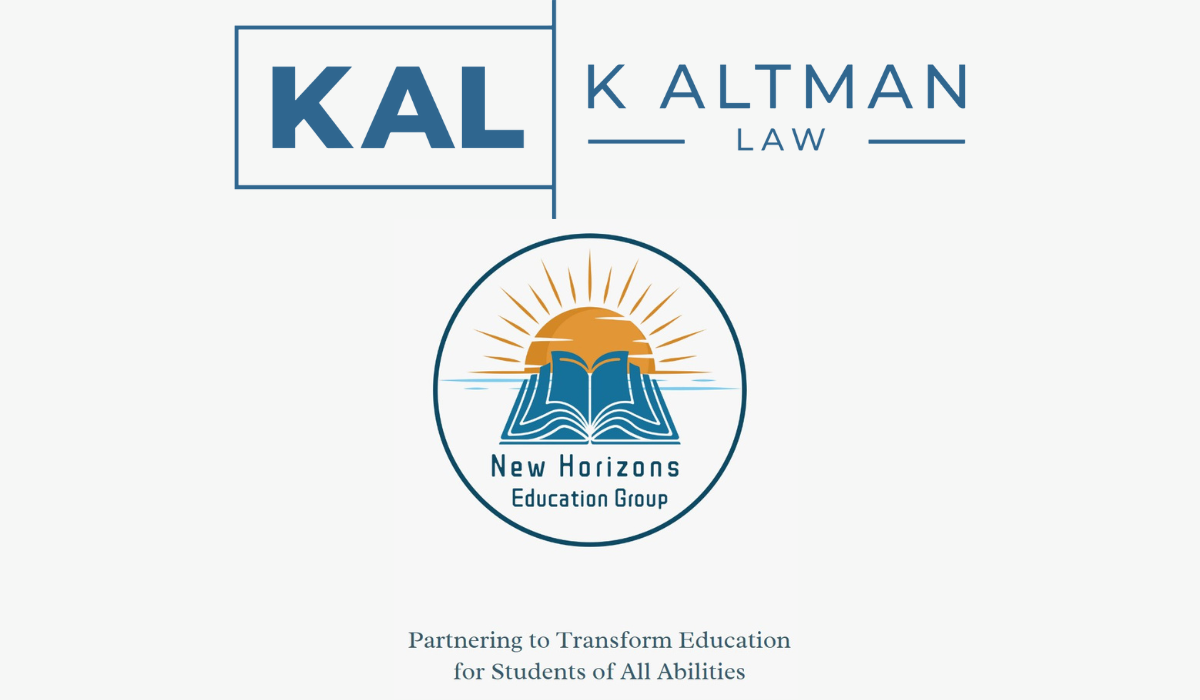Title IX’s effects on gender equality in sports are frequently acknowledged, but its safeguards extend well beyond the field of play. The goal of this federal civil rights statute is to stop sex-based discrimination in any activity or program that receives government financing for education. A safe and fair environment for all students and school staff is guaranteed under Title IX regulations, which are applicable in a variety of circumstances.
Title IX covers real-world situations that influence the everyday lives of millions of people throughout the American educational system, from athletics and admissions to protection from harassment and discrimination. Students, parents, teachers, and school officials must all understand how Title IX applies in these situations in order to guarantee equitable treatment and access to the services and assistance they need.
Today we will explore some scenarios where Title IX protection is relevant.
Use Cases Where Title IX Apply
| Scenarios | Descriptions | Title IX Protections |
| Athletics | In school sports activities, male and female students should have equal opportunity. | Title IX ensures that male and female students must have access to all athletic facilities, scholarships, coaching, and resources provided by school. |
| Sexual Harassment and Misconduct | Addressing violence and sexual harassment in educational institutions. | It is critical that schools respond promptly towards harassment allegations, ensuring that victims receive the support. Schools must investigate such incidents to prevent hostility. |
| Admission and Financial Aid | Equal access to financial aid, scholarships, and admissions.
For instance: A university prohibits pregnant students from applying to a certain program because of the expected difficulties of juggling school and parenthood. |
This constitutes discrimination under Title IX since all students, including those who are pregnant, ought to have equal access to admissions without encountering prejudice because of their parenting status. The university would have to make sure that all applicants, regardless of their unique circumstances, are included in the admissions process. |
| LGBTQ+ Protections | Equal access to financial aid, scholarships, and admissions.
For instance: A high school kid who identifies as transgender asks to use the restroom in accordance with their gender. |
In addition to providing protection against harassment and discrimination based on gender identity, recent interpretations of Title IX guaranteed protections for LGBTQ+ students, encouraging tolerance and respect in educational institutions. |
| STEM and Non-Traditional Career Paths | Ensuring that all genders have equal chances in sectors like STEM that have historically been dominated by one gender.
For instance: When girls show interest in joining the robotics club at a middle school, they are informed that the activity is “more for boys.” |
Title IX encourages schools to actively avoid gender discrimination and promote equal access to STEM and career programs, to tear down barriers in industries where particular genders have historically been underrepresented. |
| Pregnancy and Parenting Rights | For regular prenatal checkups, a pregnant college student needs academic adjustments. | Discrimination against students on the basis of parental status or pregnancy is forbidden by Title IX. Pregnant students must be accommodated by their schools so they can finish their studies without facing consequences. |
| Employment and Hiring in Education | Protection against sex-based discrimination for employees and teachers.
For instance: A school’s female instructor learns that she receives a lower salary than her male counterpart with equivalent training and duties. |
By guaranteeing fair hiring, pay fairness, and development opportunities for teachers and staff without discrimination based on gender, Title IX also applies to employment practices in educational institutions. |
Most Common Real-Life Examples Where Title IX Apply
| Sr. No. | Examples | Category | Title IX Relevance | Explanation |
| 1 | When Alice requests Mark, her teaching assistant, to stop stroking her belly when she is pregnant, he persists and threatens to deduct points from her grades. | Harassment & Discrimination | Yes | Pregnancy-related harassment and other forms of sex discrimination are prohibited by Title IX. Because Mark threatened Alice’s grades, his actions constituted quid pro quo harassment. Schools must take action to ensure a harassment-free atmosphere. |
| 2 | Liam favors working with his friend instead of Mia on a project. | Interpersonal Disputes | No | In this case, prejudice is based on personal choice rather than sex or gender. Since there is no sex-based harassment or discrimination, Title IX would not be applicable. |
| 3 | A classmate remarks that it’s “unusual to see Black fathers involved, addressing Oliver, a single Black parent. | Stereotyping & Hostile Climate | Yes | Stereotyping based on race and gender that fosters an antagonistic learning environment is forbidden by Title IX. Oliver’s experience might be impacted by this remark, which perpetuates unfavorable racial and gender stereotypes. |
| 4 | Professor Ryan promises Emma that if she goes on a date with him, she might get a better grade. | Quid Pro Quo Harassment | Yes | This is quid pro quo harassment, where personal favors are exchanged for grades. Such coercive actions by authority figures are specifically addressed by Title IX, and the institution must react. |
| 5 | Ava avoids attending courses because of a group of male classmates who frequently make sexually provocative remarks about her. | Hostile Environment | Yes | If persistent, sex-based harassment creates a hostile environment and prevents someone from accessing education, Title IX mandates action. Ava’s refusal to attend class is considered interference with her education. |
| 6 | When Sarah sees a student at a party intoxicated, she wonders if they are able to provide their consent legally. | Consent & Impairment | No | According to Title IX rules, consent is invalid when there is substantial drug or alcohol impairment. However, as this concerns individual behavior rather than an institutional complaint, Title IX is not directly applicable in this case. |
| 7 | Sexually provocative, anonymous emails addressed to “Your crush” are sent to Destiny. | Harassment | Yes | Title IX protections apply to sex-based harassment that fosters a hostile environment, such as unsolicited suggestive texts. It is proper to refer Destiny to the Title IX office. |
| 8 | A roommate feels unsafe because their ex is using phony social media profiles to stalk them. | Stalking & Safety Concerns | Yes | Title IX protects against stalking that impacts the educational environment, particularly when it involves intimidation and fear. It is proper to direct her to Title IX resources. |
| 9 | Alex, Jen’s partner, questions her whereabouts in domineering messages. | Dating Violence | Yes | Coercive control and relationship violence are covered under Title IX if they have an adverse effect on a student’s safety, mental health, or educational environment. It is in line with Title IX regulations to assist Jen by directing her to campus resources. |
| 10 | After receiving an invitation to a private meeting to “get to know each other better,” a buddy appears uneasy as they depart the graduate assistant’s office. | Quid Pro Quo Harassment | Yes | Quid pro quo harassment is when someone in a position of power creates an environment that is uncomfortable or coercive. This could be considered actionable harassment under Title IX. |
| 11 | Brody shows up at his ex’s soccer practice and sends his teammates manipulated pictures of her. | Harassment & Stalking | Yes | Title IX prohibits harassment, stalking, and the dissemination of sexual pictures, particularly when they affect a student’s safety and capacity to engage in educational activities. |
| 12 | Sonia persists despite April’s reluctance to make physical contact. | Consent | Yes | Because Title IX places a strong emphasis on continuing consent, Sonia should cease if April is hesitant. In every encounter, explicit and free consent is necessary. |
| 13 | As Tiana passes by, a bunch of kids taunt her by making offensive remarks. | Public Sexual Harassment | Yes | Harassment that creates a hostile atmosphere is covered by Title IX. Supporting Tiana is consistent with Title IX’s promotion of constructive bystander behavior. |
| 14 | As a control tactic, Alex threatens to divulge private details about his partner. | Relationship Abuse | Yes | Coercive control and relationship abuse that jeopardizes a student’s safety or mental health are protected by Title IX. |
| 15 | All students, regardless of gender, are protected under Title IX. | Broad Protection Scope | Yes | All students enrolled in federally financed educational programs are guaranteed equal protection under Title IX. |
| 16 | Sexual violence can happen to anyone, regardless of gender. | Inclusivity in Protections | Yes | All people are covered under Title IX, which supports all students—regardless of gender—who are subjected to sex-based harassment. |
| 17 | In return for a date, a professor provides a student a good grade. | Quid Pro Quo Harassment | Yes | This situation is quid pro quo harassment, where grades are used to obtain favors for the individual. This forceful action is prohibited by Title IX. |
| 18 | Peers’ frequent, explicit remarks cause a student to skip class. | Hostile Environment | Yes | The safeguards of Title IX’s hostile environment clause apply to persistent harassment that impairs educational access by fostering an abusive or hostile atmosphere. |
| 19 | Persistent behavior usually creates a hostile environment. | Harassment Standards | Yes | According to Title IX, a hostile environment that affects educational access must be characterized by severe or persistent behavior. |
| 20 | Clear, consistent, and conscious are the “Three Cs” of consent. | Consent Standards | Yes | In accordance with the requirements of Title IX for meaningful consent, consent must be freely provided and informed. |
| 21 | Legal consent cannot be given by someone who is severely drunk. | Consent & Impairment | Yes | Understanding consent requirements requires knowing that drunk people cannot give legal consent since their decision-making is impaired, as stated in Title IX. |
| 22 | Even off-campus, colleges are required to look into allegations of harassment during events they sponsor. | Institutional Responsibilities | Yes | Title IX mandates that every event involving a college-affiliated program, whether on or off campus, including extracurricular activities and athletics, be investigated. |
| 23 | An employee with corrective authority is not permitted to look into accusations of harassment. | Conflict of Interest | No | Employees with authority or conflicts of interest are prohibited by Title IX from looking into complaints in order to guarantee impartial treatment. |
| 24 | Conversations with a counselor are confidential unless directed otherwise by the student. | Confidentiality | Yes | Unless the student agrees to information sharing, Title IX preserves student anonymity in counseling. |
| 25 | Title IX protections encourage ongoing access to education. | Supportive Measures | Yes | In order to preserve access to educational activities, Title IX mandates that institutions offer support services like counseling or scheduling modifications. |
| 26 | To seek Title IX protections, an assault does not have to be reported right away. | Reporting Flexibility | No | Since Title IX does not require immediate notification, students are free to report whenever they choose. |
| 27 | Title IX does not negate a harassment report because of substance use. | Reporting Validity | Yes | According to Title IX, students are urged to report instances regardless of their level of drunkenness; their substance usage has no bearing on the validity of a complaint. |
Conclusion
Title IX guarantees safe access to education for students of all identities and backgrounds by providing protections against harassment and discrimination as well as rules for consent and interpersonal boundaries. Understanding whether Title IX is applicable can enable administrators, teachers, and students to establish campuses that value safety, diversity, and respect.
However, navigating these safeguards might be challenging. Know that there is support available to help you understand your rights and take the next steps if you or someone you know is struggling with Title IX difficulties. We at K. Altman Law are here to offer advocacy, straightforward direction, and situation-specific legal support. We are prepared to support you whether you need guidance on reporting alternatives, assistance negotiating institutional procedures, or just someone to lean on.





